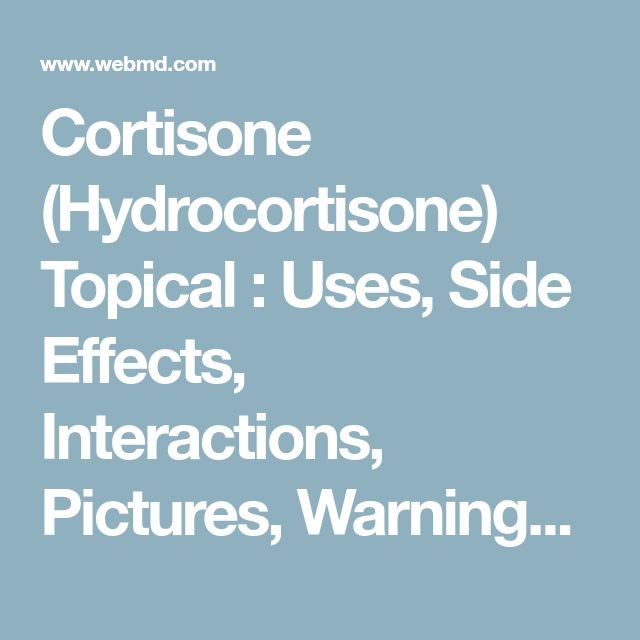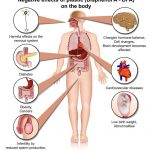
Contents
Side Effects of Cortef (hydrocortisone)
Cortef (hydrocortisone) is a corticosteroid used to treat inflammatory conditions such as arthritis, colitis, asthma, bronchitis, skin rashes, and inflammatory conditions of the nose and eyes.
Common side effects of Cortef include:
- fluid retention,
- weight gain,
- high blood pressure,
- potassium loss,
- headache,
- muscle weakness,
- moon face,
- hair growth on the face,
- thinning and easy bruising of the skin,
- glaucoma,
- cataracts,
- peptic ulcers,
- worsening of diabetes,
- irregular menses,
- growth retardation in children,
- convulsions, and
- psychic disturbances (depression, euphoria, insomnia, mood swings, personality changes, and psychotic behavior).
Serious side effects of Cortef include:
- increased susceptibility to infections,
- depressed ability of body’s adrenal glands to produce corticosteroids (with long-term use),
- osteoporosis and an increased risk of bone fractures, and rarely,
- destruction of large joints (aseptic necrosis).
Drug interactions of Cortef include vaccinations because it interferes with the patient’s immune response and can impede the effectiveness of vaccines.
- Cortef also can interfere with the tuberculin skin test and cause false negative results in patients with tuberculosis infection.
- Rifampin and phenytoin may increase the elimination of Cortef from the body, reducing its effectiveness.
- Troleandomycin and ketoconazole may reduce the elimination of Cortef, possibly leading to increased side effects.
Cortef has not been adequately evaluated during pregnancy. Cortef can appear in breast milk, and can have adverse effects on the baby. Mothers taking Cortef should discontinue breastfeeding.
What are the important side effects of Cortef (hydrocortisone)?
Hydrocortisone side effects depend on the dose, duration, and frequency of administration. Short courses of hydrocortisone usually are well tolerated with few and mild side effects. Long term, high doses of hydrocortisone usually will produce predictable, and potentially serious side effects.
Whenever possible, the lowest effective doses of hydrocortisone should be used for the shortest possible length of time to minimize side effects. Alternate day dosing also can help reduce side effects.
Side effects of hydrocortisone and other corticosteroids range from mild to serious. Side effects include:
- fluid retention,
- weight gain,
- high blood pressure,
- potassium loss,
- headache,
- muscle weakness,
- puffiness of and hair growth on the face,
- thinning and easy bruising of the skin,
- glaucoma,
- cataracts,
- peptic ulceration,
- worsening of diabetes,
- irregular menses,
- growth retardation in children,
- convulsions, and
- psychic disturbances.
Psychic disturbances can include:
- depression,
- euphoria,
- insomnia,
- mood swings,
- personality changes, and
- psychotic behavior.
Hydrocortisone and other corticosteroids can mask signs of infection and impair the body’s immune response to infection. Patients on corticosteroids are more susceptible to infections and can develop more serious infections than healthy individuals.
- For instance, chickenpox and measles viruses can produce serious and even fatal illnesses in patients on high doses of hydrocortisone.
- Live virus vaccines, such as the smallpox vaccine, should be avoided in patients taking high doses of hydrocortisone, since even vaccine viruses may cause disease in these patients.
Some infectious organisms, such as tuberculosis (TB) and malaria, can remain dormant in a patient for years. Hydrocortisone and other corticosteroids can reactivate dormant infections in these patients and cause serious illness. Patients with dormant TB may require anti-TB medications while undergoing prolonged corticosteroid treatment. Prolonged use of hydrocortisone can depress the ability of body’s adrenal glands to produce corticosteroids.
Abruptly stopping hydrocortisone in these individuals can cause symptoms of corticosteroid insufficiency, with accompanying nausea, vomiting, and even shock.
- Therefore, withdrawal of hydrocortisone is usually accomplished by gradual tapering.
- Gradually tapering hydrocortisone not only minimizes the symptoms of corticosteroid insufficiency but also reduces the risk of an abrupt flare of the disease under treatment.
- The insufficient adrenal gland function may not recover fully for many months after stopping hydrocortisone.
- These patients need additional hydrocortisone treatment during periods of stress, such as surgery, to avoid symptoms of corticosteroid insufficiency and shock, while the adrenal gland is not responding by producing its own corticosteroid.
Hydrocortisone impairs calcium absorption and new bone formation. Patients on prolonged treatment with hydrocortisone and other corticosteroids can develop osteoporosis and an increased risk of bone fractures. Supplemental calcium and vitamin D are encouraged to slow this process of bone thinning.
In rare individuals, destruction of large joints (aseptic necrosis) can occur while undergoing treatment with hydrocortisone or other corticosteroids. These patients experience severe pain in the involved joints and may require joint replacements. The reason behind such destruction is not clear.
Cortef (hydrocortisone) side effects list for healthcare professionals
Fluid And Electrolyte Disturbances
- Sodium retention
- Fluid retention
- Congestive heart failure in susceptible patients
- Potassium loss
- Hypokalemic alkalosis
- Hypertension
Musculoskeletal
- Muscle weakness
- Steroid myopathy
- Loss of muscle mass
- Osteoporosis
- Tendon rupture, particularly of the Achilles tendon
- Vertebral compression fractures
- Aseptic necrosis of femoral and humeral heads
- Pathologic fracture of long bones
Gastrointestinal
- Peptic ulcer with possible perforation and hemorrhage
- Pancreatitis
- Abdominal distension
- Ulcerative esophagitis
- Increases in alanine transaminase (ALT, SGPT), aspartate transaminase (AST, SGOT), and alkaline phosphatase have been observed following corticosteroid treatment. These changes are usually small, not associated with any clinical syndrome, and are reversible upon discontinuation.
Dermatologic
- Impaired wound healing
- Thin fragile skin
- Petechiae and ecchymoses
- Facial erythema
- Increased sweating
- May suppress reactions to skin tests
Neurological
- Increased intracranial pressure with papilledema (pseudotumor cerebri) usually after treatment
- Convulsions
- Vertigo
- Headache
- Epidural lipomatosis
Endocrine
- Development of Cushingoid state
- Suppression of growth in children
- Secondary adrenocortical and pituitary unresponsiveness, particularly in times of stress, as in trauma, surgery, or illness
- Menstrual irregularities
- Decreased carbohydrate tolerance
- Manifestations of latent diabetes mellitus
- Increased requirements for insulin or oral hypoglycemic agents in diabetics
Ophthalmic
- Central serous chorioretinopathy
- Posterior subcapsular cataracts
- Increased intraocular pressure
- Glaucoma Exophthalmos
Metabolic
- Negative nitrogen balance due to protein catabolism
Blood And Lymphatic System Disorders
- Leukocytosis
What drugs interact with Cortef (hydrocortisone)?
- The pharmacokinetic interactions listed below are potentially clinically important.
- Drugs that induce hepatic enzymes such as phenobarbital, phenytoin, and rifampin may increase the clearance of corticosteroids and may require increases in corticosteroid dose to achieve the desired response.
- Drugs such as troleandomycin and ketoconazole may inhibit the metabolism of corticosteroids and thus decrease their clearance.
- Therefore, the dose of corticosteroid should be titrated to avoid steroid toxicity. Corticosteroids may increase the clearance of chronic high-dose aspirin.
- This could lead to decreased salicylate serum levels or increase the risk of salicylate toxicity when corticosteroid is withdrawn.
- Aspirin should be used cautiously in conjunction with corticosteroids in patients suffering from hypoprothrombinemia.
- The effect of corticosteroids on oral anticoagulants is variable.
- There are reports of enhanced as well as diminished effects of anticoagulants when given concurrently with corticosteroids.
- Therefore, coagulation indices should be monitored to maintain the desired anticoagulant effect.
Summary
Cortef (hydrocortisone) is a corticosteroid used to treat inflammatory conditions such as arthritis, colitis, asthma, bronchitis, skin rashes, and inflammatory conditions of the nose and eyes. Common side effects of Cortef include fluid retention, weight gain, high blood pressure, potassium loss, headache, muscle weakness, moon face, hair growth on the face, thinning and easy bruising of the skin, glaucoma, cataracts, peptic ulcers, worsening of diabetes, irregular menses, growth retardation in children, convulsions, and psychic disturbances (depression, euphoria, insomnia, mood swings, personality changes, and psychotic behavior). Cortef has not been adequately evaluated during pregnancy. Cortef can appear in breast milk, and can have adverse effects on the baby.


